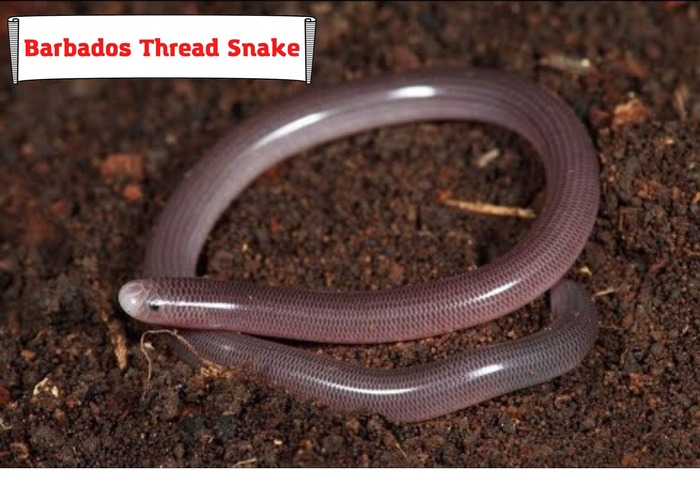Bearded dragons may seem to be really strong and severe animals. But in fact, they seek our protection. They are extremely tender and they want to always be around their owners. Bearded dragons in captivity rely on you and they feel stressed once something goes wrong in their lifestyles. You should always be there to help them cope with this stress.
Unfortunately, we can’t build our lives around bearded dragons that we have as pets in our homes. Sometimes, we need to relocate and take our animals with us. It can be a quick relocation to a house just around the corner or it can be a big relocation to a city on the other side of the continent. So, how can you help your bearded dragon cope with relocation stress?

We’ll be talking today about the following:
- Relocation stress for bearded dragons – does it always take place?
- How to reduce the stress for your pet when you relocate?
- Adaptation period after relocation – how long is it?
- Should you prepare your animal for relocation?
Let’s get started!
Why does the relocation stress occur?
Before we start talking about stress for bearded dragons, we want to remind you that these animals are prone to a lot of possible health problems. You should only keep a bearded dragon as a pet if you understand what you are going to do with it. Otherwise, it’s not a very nice idea to even buy this animal because it may lead to its early death or to severe injuries.
Actually, stress may cause really bad problems for your bearded dragon. And you should do everything to avoid stress for your dragon. We know cases when a stressed beardie died one or two weeks after the stressful situation took place.
Here’s why beardies get stressed during relocation:
- They are extremely sensitive animals. For relocating them, you will need to place them in a safe box and then they may spend a lot of time there being stressed all the time.
- It gets worse when you drive your pet in a car or take it on a plane. The road shaking or pressure changes in a plane will cause huge stress for your animal.
- Also, new places will always cause big stress in bearded dragons. They are place-bound animals which means they love being in one certain place that they know well.
- Additionally, your beardie will be stressed even more if it has to go to a new enclosure. Vets don’t recommend so many changes at a time.
- If your relocation means spending a long time in a special box, the beardie may even faint occasionally because of stress. You have to watch it constantly.
Relocation is actually big stress for your bearded dragon that you should avoid at all costs. But we don’t say that beardies can’t survive after relocation. They are still very endurable animals and they will be OK with your help.
It’s important that you help them a little. It’s not a cat or a dog who don’t usually care if they are in a new place or not. It’s a beardie with all those problems like road sickness and air pressure sensitivity. Your reptile will strongly need your support during relocation and you should always be around to help.
How to prepare your animal for relocation?
Before you decide to move, you should try to prepare your animal. First of all, your beardie should get used to the temporary box or cage. Put the animal there for a couple of hours and provide all the needed amount of water and food so that the pet understands that it’s a safe place.
Also, reduce handling a couple of days before your relocation date. Let the beardie get used to being alone.
The best idea is to take the old enclosure with you. If it’s impossible and you are planning to use a new enclosure, make sure you take a couple of things from the old enclosure to put there in the new place for your beardie. This will help the animal to get used to the new place much faster.
If you are going to spend a lot of time on the road, you should put some things from the beardie’s enclosure to the transporting box. For example, you can take the favorite hide of your animal and put it there.
Make sure that your animal doesn’t starve and has a sufficient supply of freshwater. Although the beardie will not eat a lot, the animal should have access to food and water if needed.
Using any medications is only possible after you consult with a vet. If you know for sure that your beardie is prone to relocation stress, you can ask a vet to prescribe some medication that will help your animal calm down or sleep most of the way.
What are the signs of relocation stress?
If you did everything right, you shouldn’t notice any signs of stress on the second day after your arrival. But sometimes things go wrong and the animal may start showing bad stress. It means you will have to take care of the animal and will have to do everything you can to help the beardie get out of stress.
Here are the signs of stress that usually show up right after relocation:
- your beardie refuses to eat and doesn’t show any interest in food;
- the animal doesn’t want to drink water at all;
- the animal lost weight and feels very weak;
- most of the time, your beardie spends in some hide and tries to not show up much;
- beardie doesn’t sleep well, only lies in the hides and observes everything from there;
- color of the beardie’s skin may change a little – sometimes, dark spots appear;
- your pet starts acting aggressively which is unusual for it in normal life.
All these signs may come together or just one by one changing each other. Your task is to watch the animal carefully and to understand whether it has got relocation stress or not. Once you notice something unusual, you better consult with a vet and ask what you should do to reduce the stress level.
Dealing with relocation stress – is it hard?
First of all, you should understand that every animal feels stressed individually. It means that one bearded dragon will just sleep for a day and then it will wake up without any stress. Another beardie will spend a week in the hide and only after that will start getting used to the new environment. But there are cases when you need to help your animal get over stress.
For example, if you see that your pet doesn’t eat or doesn’t poop during a stressful period, you should pay attention to the health of the animal. You have to be careful, because you may just lose your friend. Reptiles will not live long if they experience huge stress constantly.
Here are some tips to deal with stress in bearded dragons:
- Let your animal be alone in the enclosure. The first day after relocation (sometimes, the first week) is the worst time for handling your animal. Let it be alone, let it get used to the new environment.
- Give more food. A lot of beardies will require more food during stress because they will always feel hungry. It means that you will have to give more food than usual. But stick to the rule to take out all the leftovers after 15-20 minutes.
- Pay more attention to your animal. You should look at your pet more often to catch the point of critical stress and panic. If it happens, call a vet and get instructions on what you should do.
- Don’t give live food to your animal. During the period of relocation stress, you should choose protein-rich food, but not live food. This will reduce stress and help your beardie get over it faster.
- Call a vet. You should have a phone number of a good vet in terms if something urgent happens. If you see big signs of stress, you should take your beardie to a vet for better advice on what to do.
Unfortunately, a lot of bearded dragon owners don’t understand what kind of danger they put their animals in when they relocate. You should pay attention to your beardie all the time and check if it feels OK. It’s not hard and this may save the life of your pet. Just remember that these creatures are very sensitive and they need your care.
Final words
Relocation stress is the usual thing for bearded dragons. These creatures are not always strong enough to withstand all fear of transportation. And they can get big stress that will cause health problems. You should keep an eye on your animal and control it if it needs your help. Make sure you prepare your pet for the relocation and you do everything you can to reduce stress and help your reptile get over this stress as fast as possible.
- Pacman Frog Looks Deflated – What’s Wrong and What to Do? - August 7, 2023
- How to Put Snake Back in Cage after Feeding? Important Concerns - July 31, 2023
- Repta Boost: Instruction, Considerations, Ways to Use - July 24, 2023



